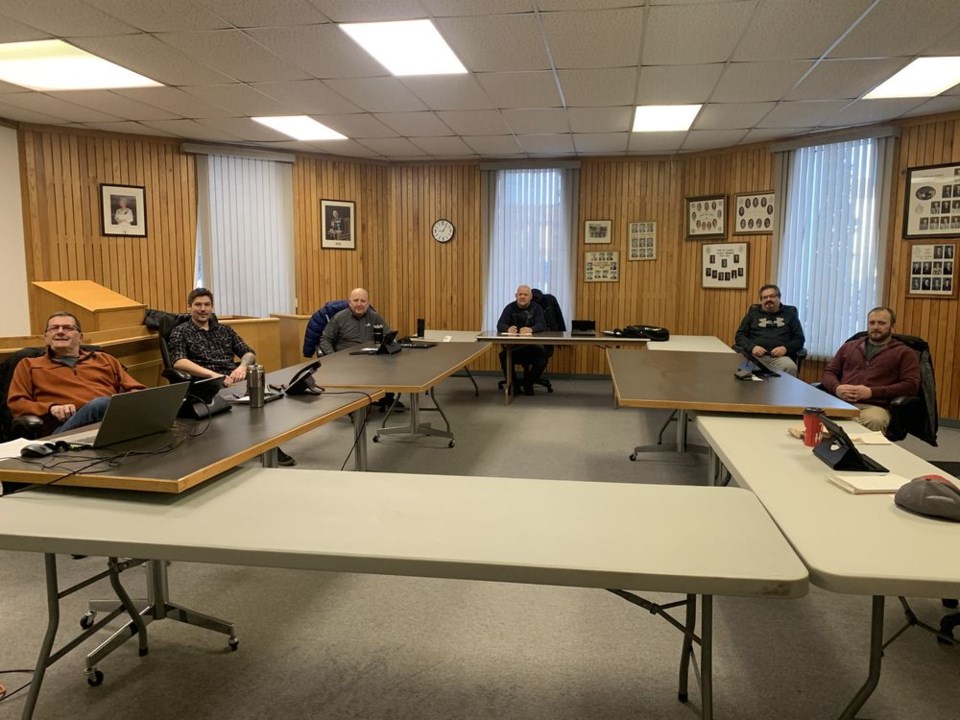Mayor Mike Kwas and all of Canora town council attended the 116th annual convention of the Municipalities of Saskatchewan (MuniSask) from February 7 to 10. This year, due to COVID restrictions, the convention was held online in a virtual format. Canora council met at the town hall to attend the event as a group.
Joining Mayor Kwas were: councillors Eric Sweeney, Brad Gabora, Jacqueline Fetchuk, David Wasyliw, Matt Thompson and Kerry Trask.
The group heard Premier Scott Moe announce $275 million in Municipal Revenue Sharing funding for 2021-2022, Kwas said. While this year’s local allocation under the provincial formula will not be known for a few weeks, Canora received $460,248 in revenue sharing for 2020-2021.
Also, under the Municipal Revenue Sharing program, there is $1.6 million available through the Targeted Sector Support Initiative for municipal projects aimed at good governance, regional planning and inter-community collaboration. This is part of a continuing trend or push towards encouraging neighbouring municipalities to work together to achieve common goals.
An additional $3 million in funding is available for the Urban Highway Connector Program (UHCP) of which Town of Canora is a member. The program includes Highway No. 5 and Highway No. 9 in Canora. “And although we don’t know exactly how it will affect us yet, it was announced that the Ministry of Highways will be assuming 100 per cent of the maintenance and rehabilitation costs for urban connectors in Saskatchewan towns effective April 1,” reported Kwas.
As one of four new council members in Canora, Kwas said he was looking forward to meeting and building relationships with his peers from other communities. However, because the event was held online, the opportunity for networking was somewhat limited. “It was good though to become familiar with the various provincial cabinet ministers during the bear pit session and it helped put faces to the some of the names that appear on the provincial communications regularly received by council,” he said.
At last year’s convention, the membership discussed the association’s name, when the Saskatchewan Urban Municipalities Association (SUMA) changed its name to Municipalities of Saskatchewan (MuniSask). This year, delegates heard a request from the provincial government to reconsider the change, he said. The new title was not well received by the Saskatchewan Association of Rural Municipalities (SARM) and will ultimately require provincial government approval to stand.
The number of resolutions at this year’s convention was significantly lower than usual, Kwas said. And most had no direct impact on Canora’s operations. One item of interest, a resolution to have urban municipal elections staggered and held every two years, similar to the system in place for rural municipalities, was defeated.
Rodger Heywood, mayor of Naicam, was elected president of MuniSask, defeating long-serving president Gordon Barnhart.
“Many relevant topics were presented, including attracting visitors through tourism, enhancing economic development, securing funding for projects and new changes involving environmental liability,” concluded Kwas.



